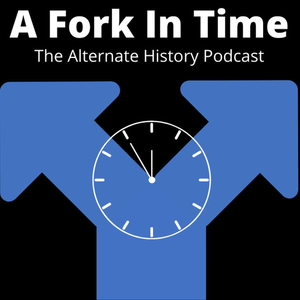
Rising waters
05/28/20 • 39 min
When rain pummeled Charleston last Wednesday, a team of reporters and photographers fanned out across the region, assessing damage and talking to people as they waded through the floodwaters.
Streets were closed, cars stranded and parking lots turned into ponds.
The next day, The Post and Courier published the first package of Rising Waters, a new effort to cover the serious effects of sea level rise and flooding on people's lives and the region's economy.
To accomplish the project's goals — which include creating a larger public dialogue about actionable solutions — the reporting will be a mix of breaking news coverage and investigative reporting that gets at the immediacy of the issue while delving in the science that explains why it's happening.
The city has a front row view to the real-time impacts of climate change, and those impacts are just coming faster.
Storms are not only more frequent but stronger and harder to predict. Sea level rise in Charleston has gone from rising at a rate of an inch every decade to an inch every two years.
We talked with projects editor Glenn Smith and senior projects reporter Tony Bartelme about this new approach to covering flooding and sea level rise, what readers can expect in the future from Rising Waters and how they can contribute. Listen to find out.
When rain pummeled Charleston last Wednesday, a team of reporters and photographers fanned out across the region, assessing damage and talking to people as they waded through the floodwaters.
Streets were closed, cars stranded and parking lots turned into ponds.
The next day, The Post and Courier published the first package of Rising Waters, a new effort to cover the serious effects of sea level rise and flooding on people's lives and the region's economy.
To accomplish the project's goals — which include creating a larger public dialogue about actionable solutions — the reporting will be a mix of breaking news coverage and investigative reporting that gets at the immediacy of the issue while delving in the science that explains why it's happening.
The city has a front row view to the real-time impacts of climate change, and those impacts are just coming faster.
Storms are not only more frequent but stronger and harder to predict. Sea level rise in Charleston has gone from rising at a rate of an inch every decade to an inch every two years.
We talked with projects editor Glenn Smith and senior projects reporter Tony Bartelme about this new approach to covering flooding and sea level rise, what readers can expect in the future from Rising Waters and how they can contribute. Listen to find out.
Previous Episode

When and why to wear a mask
In South Carolina, the decision of whether or not to wear a mask has fallen on individuals.Politicians and public health officials have been urging people to wear face coverings to prevent the spread of the coronavirus, but some are concerned people are ignoring the advice. One poll found that South Carolinians lag behind 40 other states in mask use.That's pretty clear on a trip to the grocery store, where maybe two-thirds of customers wear face coverings. It's even more evident on a trip to a recently-reopened restaurant or coffee shop.
The state's top infectious disease investigator, Dr. Linda Bell, said she was alarmed to see college students packed outside bars in Columbia on a recent weekend night, all without face masks.
Seeing a low percentage of people covering their faces is especially concerning to health experts because masks are more effective in preventing the transmission of COVID-19 if more people wear them.So, why have so many people been going maskless?We talked with projects reporters Avery Wilks and Thad Moore about why the question of when to wear a mask has become a social conundrum in South Carolina.
Next Episode

SPECIAL: Full interview with Gee Jordan on his arrest
Images and videos from protests against racism and police brutality have been filling our news feeds and social media pages for days now.
It can be overwhelming to scroll through it all — and much more overwhelming, and sometimes dangerous, for the protesters who are actually on the streets — but sometimes one moment cuts through it.
That was the case for video that was captured during a protest in Charleston's Marion Square on Sunday, which has caught the attention of millions of viewers.
It shows 23-year-old Givionne “Gee” Jordan kneeling before a line of police officers as other protesters stood or knelt around him. In that overwhelming moment, he wanted to pause and project a sense of peace and unity.
“I am not your enemy,” he said to police. “All of you are my family.”
Moments later, he was arrested.
We spoke with Jordan about his experience that day, why he came to stand with protesters in Marion Square and the difference he wanted to make with his words. Listen to the full interview below.
If you like this episode you’ll love
Episode Comments
Generate a badge
Get a badge for your website that links back to this episode
<a href="https://goodpods.com/podcasts/understand-sc-60617/rising-waters-8683047"> <img src="https://storage.googleapis.com/goodpods-images-bucket/badges/generic-badge-1.svg" alt="listen to rising waters on goodpods" style="width: 225px" /> </a>
Copy




